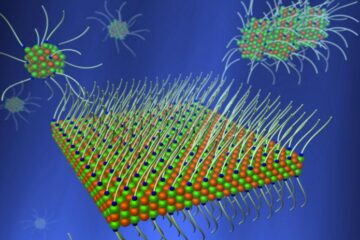
The first ever exoplanets were discovered 30 years ago around a rapidly rotating star, called a pulsar. Now, astronomers have revealed that these planets may be incredibly rare. The new…

Data centers — dedicated spaces for storing, processing and disseminating data — enable everything from cloud computing to video streaming. In the process, they consume a large amount of energy…

Discovery also paves way for robots and wearable devices that mimic natural motion. UCLA materials scientists and colleagues at the nonprofit scientific research institute SRI International have developed a new…
EPFL and CSEM smash through the 30% efficiency barrier for perovskite-on-silicon-tandem solar cells—setting two certified world records. Increasing the power conversion efficiency of solar cells is important for two reasons….

The new frontier for self-driving vehicles and portable devices in a chip. ‘Light’ features a study by the Politecnico di Milano in collaboration with the Scuola Superiore Sant’Anna in Pisa….

– solar cells and LEDs – with funding to expand scientists’ team. Chemistry expert secures Humboldt Foundation funding to recruit scientists for nanomaterials research. An expert in nanomaterials who is…

Unusual magnetically driven vortices may be generating Earth-size concentrations of hydrocarbon haze. While Jupiter’s Great Red Spot has been a constant feature of the planet for centuries, University of California,…

Scientists from the H.E.S.S. collaboration including a consortium of German universities, the Max-Planck-Institut für Kernphysik and the CNRS in France have recently identified electrons and positrons with the highest energies…

Scientists at the European XFEL and DESY produce high-power attosecond X-ray pulses at megahertz repetition rates. Publication in Nature Photonics. A research team at European XFEL and DESY has achieved…

New insights into how checkpoint inhibitors affect the immune system could improve cancer treatment. A multinational collaboration co-led by the Garvan Institute of Medical Research has uncovered a potential explanation…

University of Wisconsin–Madison biochemists have developed a new, efficient method that may give first responders, environmental monitoring groups, or even you, the ability to quickly detect harmful and health-relevant substances…

Constant ‘churn’ of new cancer cells gives the disease ample room for evolutionary innovation, according to a study in the journal eLIFE. Researchers at the University of Cologne and the…

Electrically defined quantum dots in zinc oxide. Researchers have successfully created electrically defined quantum dots in zinc oxide (ZnO) heterostructures, marking a significant milestone in the development of quantum technologies….

Using energy- and resource-saving methods, a research team at the Institute of Inorganic Chemistry at TU Graz aims to produce high-quality doped silicon layers for the electronics and solar industries….

A large number of 2D materials like graphene can have nanopores – small holes formed by missing atoms through which foreign substances can pass. The properties of these nanopores dictate many…

New deep learning architecture enables higher efficiency. It is the computational processing of images that reveals the finest details of a sample placed under all kinds of different light microscopes….

Humans and animals move with remarkable economy without consciously thinking about it by utilizing the natural oscillation patterns of their bodies. A new tool developed by researchers at the Technical…

AI-enhanced metalenses achieve high-resolution, full-color imaging for compact optical systems. Modern imaging systems, such as those used in smartphones, virtual reality (VR), and augmented reality (AR) devices, are constantly evolving…